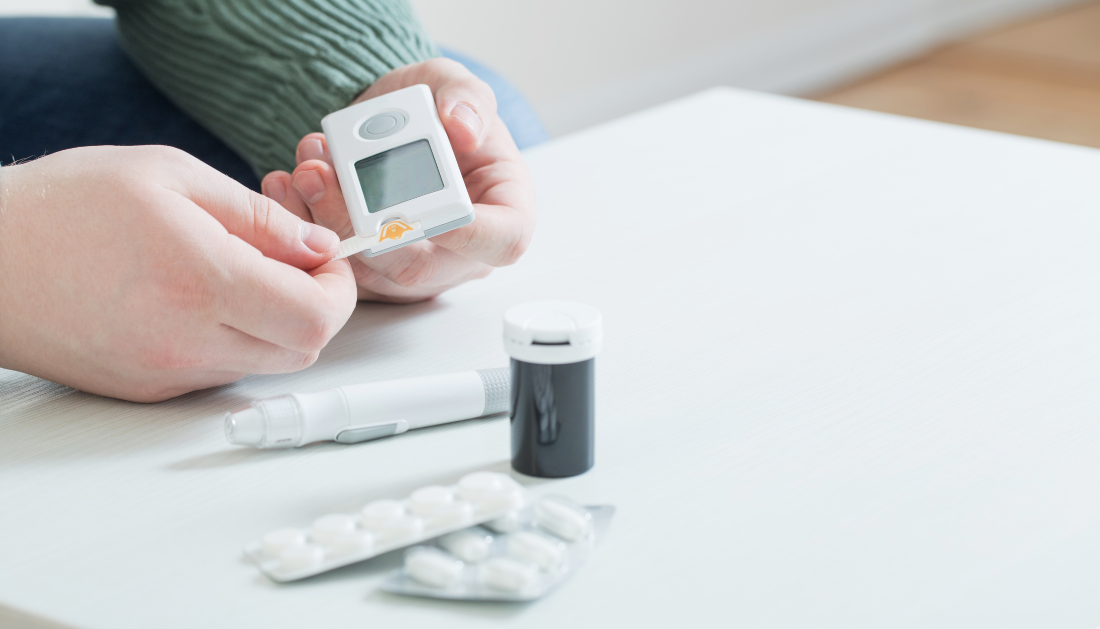

According to recent studies, people with diabetes may benefit further from the combination use of glucagon-like peptide-1 receptor agonists (GLP1-RAs) and sodium glucose co-transporter 2 inhibitors (SGLT2is) to prevent heart and kidney problems. The results were presented in May at the 61st European Renal Association Congress in Stockholm, Sweden, and were published today in The Lancet Diabetes & Endocrinology.
A class of medications known as SGLT2is, or gliflozins, lower blood sugar by increasing the amount excreted in the urine, whereas GLP-1RAs, like Ozempic, improve insulin sensitivity and release. It has been demonstrated that both medical classes enhance cardiovascular results. While brief, small-scale trials have indicated that the combination of these medications improves blood glucose management, the impact of the combination on heart disease and renal failure is less evident.
The SGLT2 Inhibitor Meta-analysis Cardio-Renal Trialists’ Consortium (SMART-C) researchers combined data from 12 extensive, placebo-controlled SGLT2is trials that included 73,238 diabetes patients, 3,065 of whom were already on GLP1-RAs. The results of the meta-analysis demonstrated that SGLT2is benefits were seen regardless of the usage of GLP1-RA.
Even when taken in addition to GLP1-RAs, SGLT2is decreased the risk of significant adverse cardiovascular events (myocardial infarction, stroke, or cardiovascular death) by 11% and hospitalization for heart failure or cardiovascular death by 23%.
In addition, SGLT2is delayed the annual loss of kidney function by nearly 60% and decreased the likelihood of chronic kidney disease development by 33% when combined to GLP1-RAs. The combination of SGLT2is and GLP-1RAs did not raise any new safety issues.
Lead author of the study and clinical associate professor Brendon Neuen, senior research fellow at The George Institute for Global Health, director of kidney trials at Sydney’s Royal North Shore Hospital, stated, “It was important to look at their effects with SGLT2 inhibitors given the rapidly expanding indications for the use of GLP-1 receptor agonists.” The largest and most thorough evaluation of the clinical results for this particular medication combination is represented by this study.”
“SGLT2 inhibitors have clear protective effects against heart failure and chronic kidney disease, while GLP-1 receptor agonists can reduce the risk of heart attack, stroke, and kidney disease—as recently demonstrated in the landmark FLOW trial,” Neuen continued. “Both classes of medicines work independently of each other.”
“Our findings support using this combination to further improve outcomes in patients with type 2 diabetes who meet guideline recommendations for both therapies.”
Diabetes is a known risk factor for renal and cardiovascular disease because it impairs glucose regulation, which damages blood vessels in the kidneys and heart. The frequency of chronic renal disease and cardiovascular disease is rising in persons with diabetes in the years after diagnosis.
For more information: fficacy and safety of SGLT2 inhibitors with and without glucagon-like peptide 1 receptor agonists: a SMART-C collaborative meta-analysis of randomised controlled trials, The Lancet Diabetes & Endocrinology, https://dx.doi.org/10.1016/S2213-8587(24)00183-9
more recommended stories
 Phage Therapy Study Reveals RNA-Based Infection Control
Phage Therapy Study Reveals RNA-Based Infection ControlKey Takeaways (Quick Summary) Researchers uncovered.
 Safer Allogeneic Stem Cell Transplants with Treg Therapy
Safer Allogeneic Stem Cell Transplants with Treg TherapyA new preclinical study from the.
 AI in Emergency Medicine and Clinician Decision Accuracy
AI in Emergency Medicine and Clinician Decision AccuracyEmergency teams rely on rapid, accurate.
 Innovative AI Boosts Epilepsy Seizure Prediction by 44%
Innovative AI Boosts Epilepsy Seizure Prediction by 44%Transforming Seizure Prediction in Epilepsy Seizure.
 Hypnosis Boosts NIV Tolerance in Respiratory Failure
Hypnosis Boosts NIV Tolerance in Respiratory FailureA New Approach: Hypnosis Improves NIV.
 Bee-Sting Microneedle Patch for Painless Drug Delivery
Bee-Sting Microneedle Patch for Painless Drug DeliveryMicroneedle Patch: A Pain-Free Alternative for.
 AI Reshapes Anticoagulation in Atrial Fibrillation Care
AI Reshapes Anticoagulation in Atrial Fibrillation CareUnderstanding the Challenge of Atrial Fibrillation.
 Hemoglobin as Brain Antioxidant in Neurodegenerative Disease
Hemoglobin as Brain Antioxidant in Neurodegenerative DiseaseUncovering the Brain’s Own Defense Against.
 Global Data Resource for Progressive MS Research (Multiple Sclerosis)
Global Data Resource for Progressive MS Research (Multiple Sclerosis)The International Progressive MS Alliance has.
 AI Diabetes Risk Detection: Early T2D Prediction
AI Diabetes Risk Detection: Early T2D PredictionA new frontier in early diabetes.

Leave a Comment